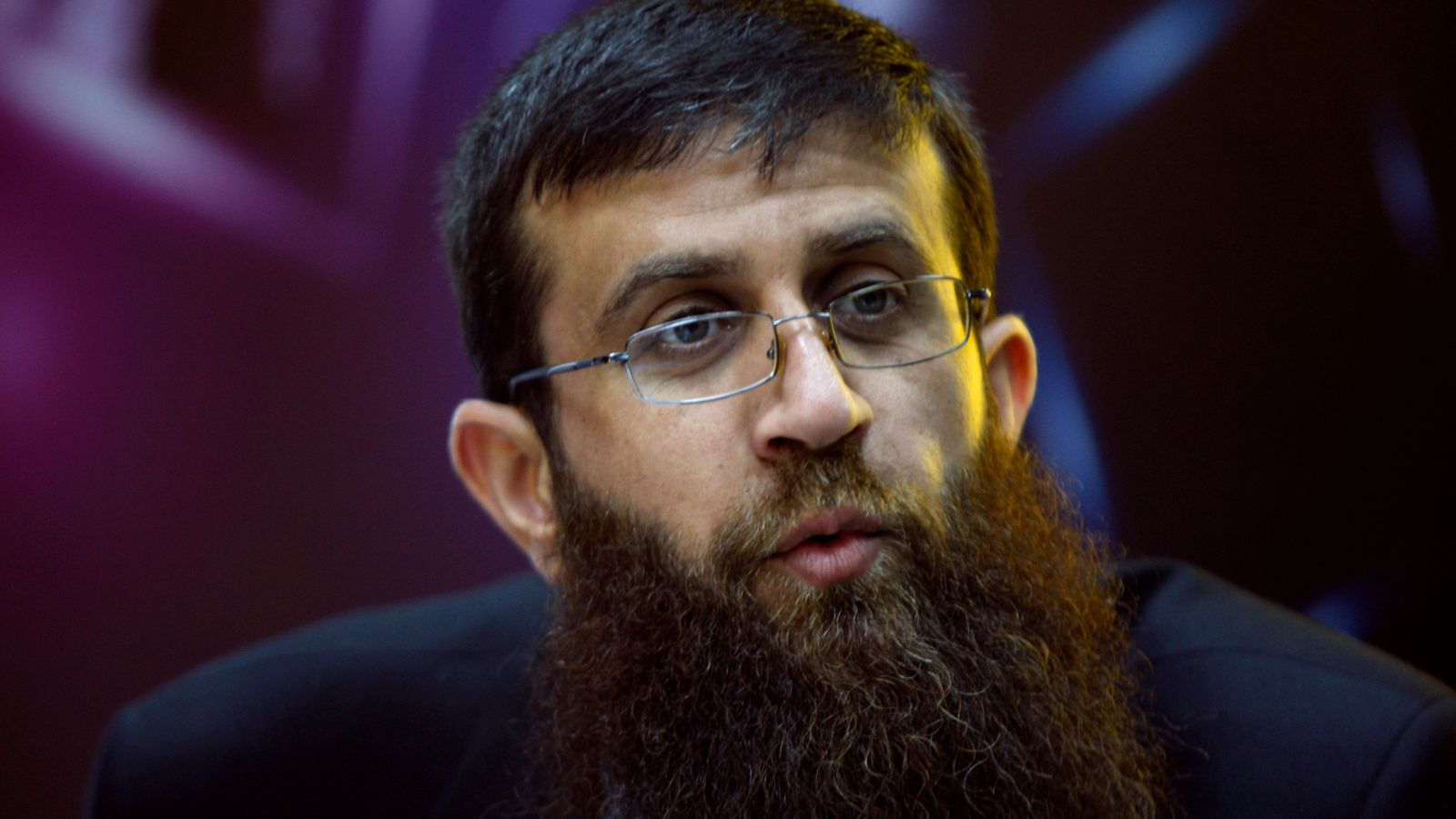Palestinian prisoner dies in Israeli custody after months-long hunger strike

A high-profile Palestinian prisoner has died in Israeli custody after a nearly three-month hunger strike, Israel’s prison service has announced.
Palestinian inmates have for years been staging protracted hunger strikes to protest against their detention and to seek concessions from Israel.
Khader Adnan, a leader in the Palestinian Islamic Jihad militant group – is the first to die in decades. The 45-year-old began his hunger strike shortly after being arrested on 5 February.
His death raises the potential for renewed violence between Israel and Palestinian militant groups as violence surges in the West Bank.
Shortly after his death was announced there were clashes between Palestinians and Israeli police in the West Bank.
Palestinian militants in the Gaza Strip fired a volley of rockets into southern Israel. Palestinian groups also called for a general strike in the West Bank, Jerusalem and the Gaza Strip.
Israel’s prison service said Adnan had been charged this time with “involvement in terrorist activities” but had refused medical treatment while legal proceedings moved forward.
It said he was found unconscious in his cell early on Tuesday and transferred to a hospital where he was pronounced dead.
Dawood Shahab, an Islamic Jihad spokesman, called Adnan’s death “a full-fledged crime, for which the Israeli occupation bears full and direct responsibility”.
Advertisement
The Islamic Jihad militant group said in a statement that “our fight continues and will not stop”.
Hunger strikes have become a last recourse for resistance against what Palestinians see as unjust incarcerations. The prisoners often become dangerously ill by refusing food but deaths are rare.
In most cases, Israel has eventually released them after their health significantly deteriorated. None have previously died in custody but many have suffered irreparable neurological damage.
Please use Chrome browser for a more accessible video player
0:36
Israelis enter al Aqsa mosque compound with armed escort
Read more:
Israeli army shoots dead two alleged gunmen
Netanyahu says minister will remain in post despite sacking
Israel is currently holding more than 1,000 Palestinian detainees without charge or trial, the highest number since 2003, according to the Israeli human rights group HaMoked.
That figure has grown in the past year as Israel has carried out almost nightly arrest raids in the occupied West Bank in the wake of a string of deadly Palestinian attacks in Israel in early 2022.
Israel says the controversial tactic helps authorities thwart attacks and hold dangerous militants without divulging incriminating material for security reasons.
Palestinians and rights groups say the system is widely abused and denies due process, with the secret nature of the evidence making it impossible for administrative detainees or their lawyers to mount a defence.